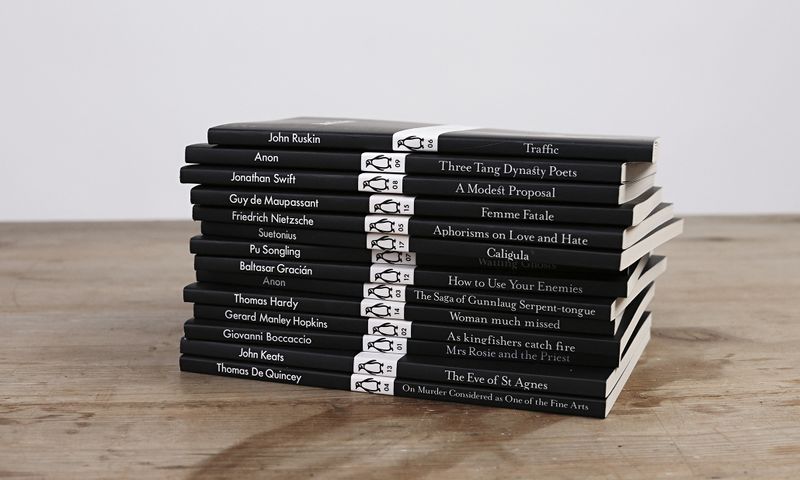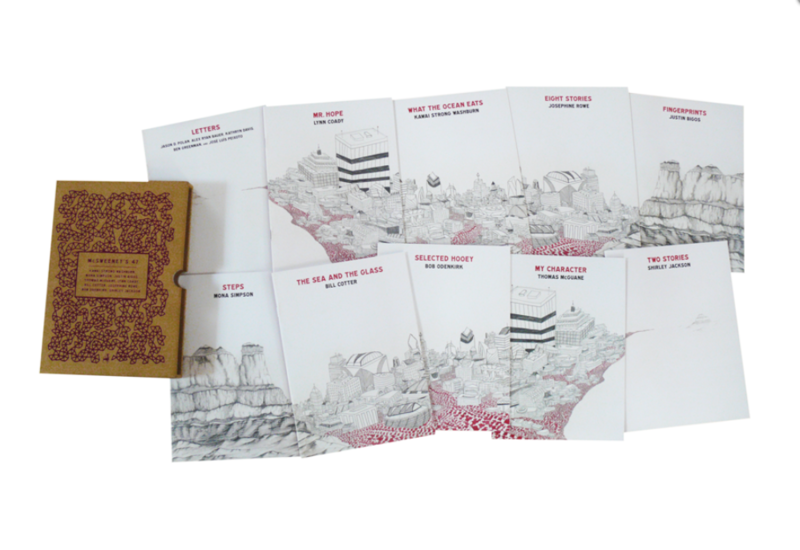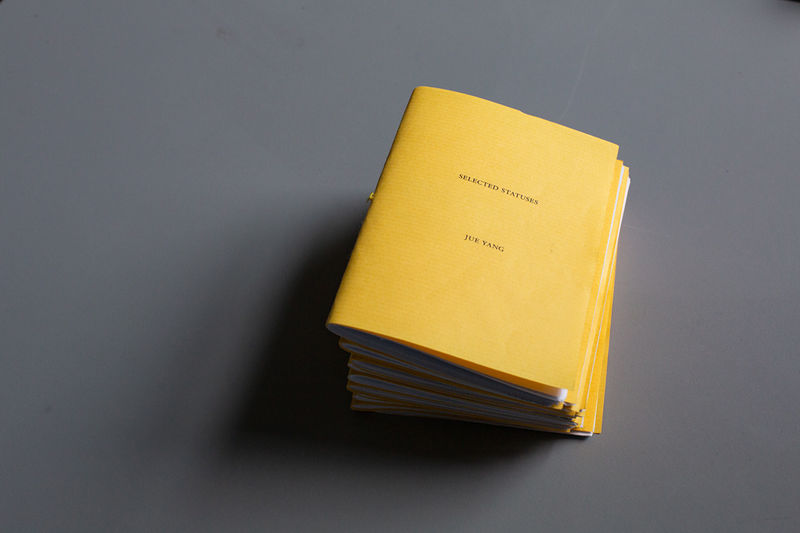Jujube/thesis-drafts
why I write
1.
My mom finally mailed me a box of stuff, which she picked out from what I had mailed her from the US the year before. She said she couldn't include the knives. Apparently the government had banned the mailing of sharp objects, which meant my immersion blender didn't make it, either.
My mom sent the box from China. I knew she packed it because I found two plastic bags with the Chinese label, "Bei Yi Department Store." She worked there for more than twenty years before retiring at the age of fifty. I recognized my dad's handwriting on the mailing label. In the field for "detailed description of contents," he wrote — in Chinese characters and then, using the same squarish strokes, English letters — "Clothes" and "Books".
He declared their worth: 1500 US Dollars.
Inside the box I found, besides the few books and shirts, two hiking maps from National Geographic and a knitted grocery bag I got in Oaxaca.
I suppose my dad understood the value of these things to me by putting down a number eleven times higher than their material cost.
One of the books was Letters to a Young Poet by Rainer Maria Rilke, which I ordered the day my college architecture advisor told me to read it, eight years ago.
We were having a conversation about future — probably my future.
"My dad wanted me to be a lawyer," he said, "as an English major, I thought architecture would be the middle ground."
I also remember him saying: the present things are clear while the past trickles away.
Trickles, tinkles, twinkles, he must have said one of those words as he pressed his fingers together and make a gesture towards something far. I agreed with the revelation.
My first ever summer fling used one of Rilke's quotes as his email signature. I was never quite sure why he had chosen that line, "everything is gestation towards birth." Finding it again in this book was like visiting a feeling I had forgotten.
words from Rilke
I wrote — had been writing — because I depended on it.
If I didn't write, the unsaid words would weigh in my limbs and my chest; I would collapse and burst into a pool of flames.
Things became true when I wrote. The tip of the pen touched the paper, casting thoughts into form. I used to write under a lamp, watching the ink absorbed by the paper with every twist and turns from my hand. I would often got used to a pen and felt uneasy when switching to a new one, which seemed too thick, too smooth, too shiny, too fine.
I wrote, but for the longest time I couldn't say I was a writer. Writing was then a private affair. When I eventually found ways to share I would only share a small portion of what I wrote. From the outside they resembled riddles, poetry and sarcasm.
There was a distance between me and me, and therefore, there was a distance between me and the world.
2.
When I was 17 or 18, before going to the US, I wrote a letter to myself in Chinese. Around that time I was enamored by Stefan Zweig. I bought all the books I could find under his name, thinking I would learn German one day just to read them in their original language.
There is one line from that letter that I revisit ever so often, my mind's eye watching my moving hand.
"One day I will be an author."
3.
I used to write short stories filled with inner monologues.
A woman waiting for her flight to a Thanksgiving dinner.
A woman losing her favorite color.
A woman afraid of the color green.
A factory worker unable to find a stone from his pocket.
plays
images
The first time I saw a dandelion I was twenty years old.
--
--
--
"Being here is a demarcation of time," I wrote that in September, 2018.
I wanted to make a speech about the physical and internal turmoil, some of which I endured and some of which I inflicted on myself. But I didn't. Instead I showed some works from the past. The first website I made, the last website I made. A series of photos. A snapshot of a play script.
key texts
feelings
- Jujube/synopsis#United_by_Feelings
- Jujube/synopsis#Feelings.2C_Emotion.2C_Affect
- Jujube/synopsis#David_S._Miall:_Emotions_and_the_Structuring_of_Narrative_Responses
I want to evoke feelings. I believe it is shared human nature and thus a way to foster empathy. Empathy comes from compassion (understanding and love) for the self.
I can now say this, with certainty and humility, that I want to surround myself with understanding and thus create a world where people understand each other. If you see me in you, and if I see you in me, perhaps the world will suffer less.
A few people whose judgement I trust have told me, "nobody can ever understand you in totality," which I have come to agree. In trying to be understood, I finally become able to understand myself. And that's where I connect self-compassion and empathy.
memories (and the conflict with narrative)
- Jujube/synopsis#Siegfried_Kracauer:_Memory_Images.2C_1927
- Jujube/abstracts-non-text#Play:_salt <--a one-woman play instead of text
Memories are images strung together. Words construct images — words come to me via memories.
A few people told me that my writing touches or bring to mind images.
That's how poetry works, I suppose.
I want others to understand, through these images, something about me, something about themselves.
the making of images without language
"A film is a story or a proposition... that is shaped, angled, finite, intended, whether it is a documentary, an art installation, a bit of gritty realism, or a full-blown fantasy... A film-maker is a person who makes such things."
I encountered the camera not through intention, but chance.
If you ask, "why the camera," I would say:
I took a chance. I connected the dots from my past. I was curious.
And I have been privileged to stay with it, hold it, test it. I have become decisive and considerate with its help — I am an ally, and more importantly, a student.
"And why film?"
I discovered time through film. I unearthed my intention about image-making. In writing and in making films I am drawing a very, very large circle, some sort of infinity that help me understand my being in this world.
I ask more concrete questions through the things I make:
Do narrative and personal memory ever come together, or must one become fictionalized? If I want to evoke feeling, should I construct a story around it?
causality, narrative, dramatic logic
Causality is important in determining narrative. Different time periods (cultures) tend to favor different causality. (Perpetuations of the unhealty, unresolved kind seem irresponsible.)
Narrative, in the dramatic sense, follows dramaturgy.



